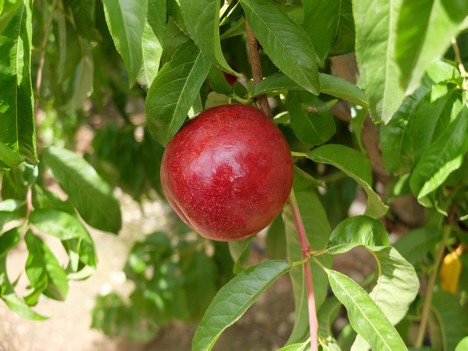Following the acquisition in 2018 of the stone fruit and apple varietal improvement program from Agro Sélections Fruits (ASF), as well as the Primor program in 2020, Frutaria Innovation is launching some new low chilling varieties that will allow it to extend the start of its production schedule.
"Since the Spanish company Frutaria Innovation acquired ASF in 2018 to turn it into its R&D center, the focus has been on medium and high chilling stone fruit varieties, i.e. those that need many chilling hours of chilling," said Aurélie Ferrieux, executive director of ASF.

"By incorporating the Primor program, Frutaria Innovation has increased its varietal portfolio of Regal'in round peaches and round nectarines with low chilling varieties adapted to warmer climates, thus extending its production schedule from mid-June to late April, and finishing in the last week of September," he said.
Since the ASF program was created in 1996, a number of peach, nectarine, flat nectarine and apricot varieties have been developed within the stone fruit range, as well as apple varieties.
"The program was created to be able to offer varieties with a semi-sweet flavor profile (not sub-acid); that is, sweet, but with an acid touch that gives it more aroma; a requirement from the Maillard family, founder and owner of the program. Also important is their great agronomic potential, especially in terms of productivity, caliber and color. We follow the same hybridization protocols in our research center in Perpignan, France, as well as in Caspe, Huelva and Seville, Spain. We are very strict about this and until we are sure that we are achieving the same taste and productivity across the range and in all growing areas, we do not approve the selection," says Aurélie Ferrieux.

ASF has more than 10,000 hectares of varieties planted worldwide, available between April and September in the northern hemisphere and between November and March in Chile, South Africa and Australia. They are all marketed under the Regal'in brand in the case of round fruit and the Ondine for flat nectarines and high-end flat peaches. In Spain, the production from 200 hectares is marketed under the Regal'in brand, of which Frutaria and Fruits de Ponent are the authorized distributors for peaches, nectarines and apricots. 100% of the planted Ondine varieties are regulated by the Ondine Club.
"Now we are managing to fill the gap we had in the early fruit segment with a range of varieties that are faithful to a brand concept, offering the consumer a fruit that always has the same flavor, quality and color from the beginning to the end of the campaign, This allows the products to be easily identifiable on the shelves, as is the case with other snacks," says the executive director of ASF.
"It has not been easy to implement these brands in large-scale distribution, but this program couldn't be conceived in any other way, since consumers must be able to identify the fruit in order to repeat their purchases for the benefit of the entire value chain," she says.

The number of collaborating partners in earlier production areas, such as Murcia, Seville, Morocco, Egypt or California, is on the rise, and this is facilitating the brand's recognition at retailers, since it remains on the shelves from the beginning of the season. "For us, what matters most is not to arrive first, but to start with a fruit that meets all the requirements that characterize our brands," says Aurélie.
"Now we are working to try expanding our flat fruit range in the south. We are also pursuing the development of red nectarine varieties. There are already several breeders talking about their red varieties, focusing mainly on the flesh color. We shouldn't forget that red fruit tends to be acidic, and although it is difficult to obtain it with the organoleptic standards we are known for, we are already finding interesting and consistent materials," said the executive director of ASF.
 For more information:
For more information:
Aurélie Ferrieux
ASF Edition
Route d'Alenya, La Prade de Mousseillous
66200 Elne, France
[email protected]
